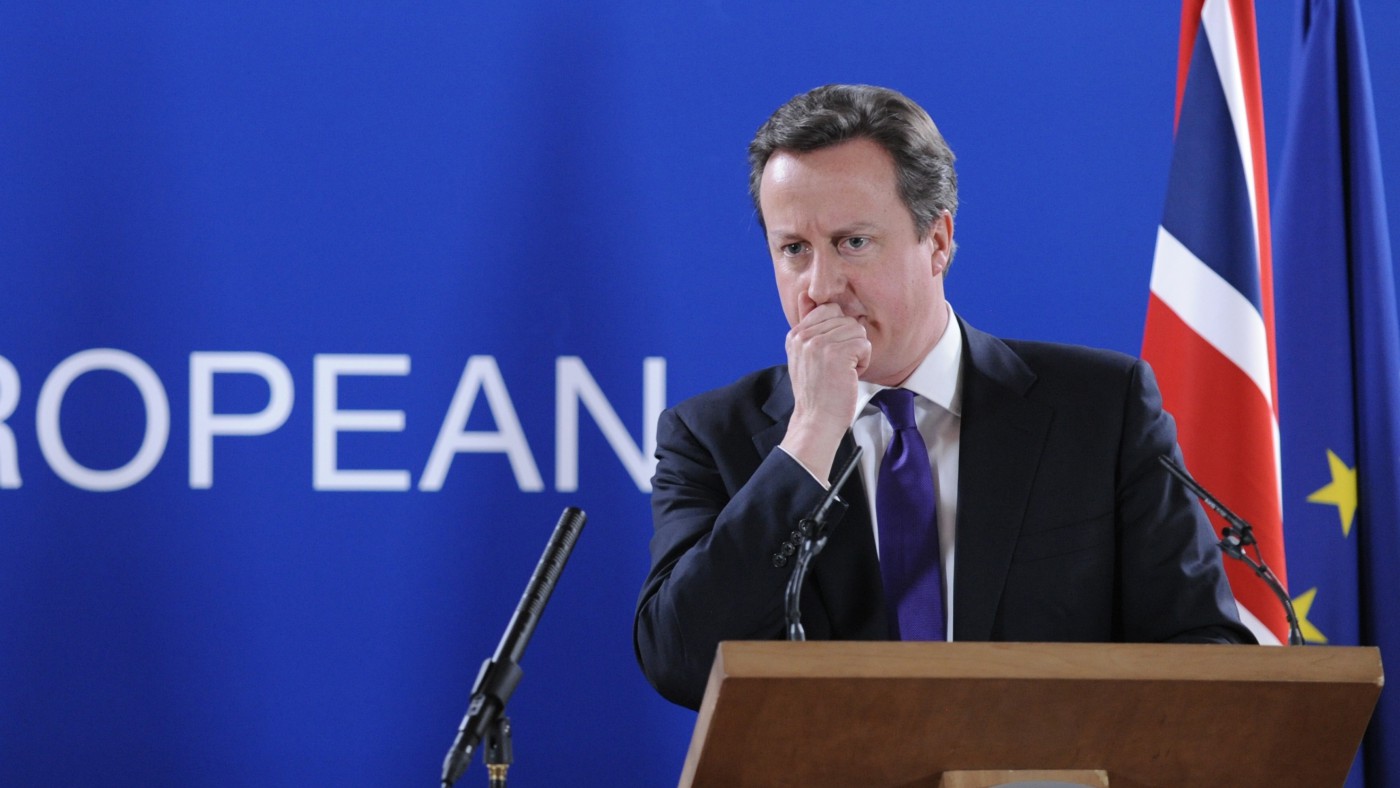Look, there’s no way of putting this modestly, so I’m just going to come straight out with it. I’m pretty sure that I was the person who first came up with the renegotiation-then-referendum idea. I proposed it in this piece back in 2011, as a way to unite all sides:
“The way out is to set a date for an In/Out referendum as an agreed end-point of any renegotiation talks. It doesn’t have to be tomorrow, or next month, or even next year. Supporters of EU membership would then have every incentive to improve our membership terms in advance of the poll.”
Fifteen months later, David Cameron adopted precisely that policy. There would be a referendum before the end of 2017, he said, leaving an opportunity for an overhaul of Britain’s membership terms in the mean time.
When he made that speech, in January 2013, the expectation was that the EU would have to adopt a new treaty in order to legalise the fiscal consolidation required by the euro crisis. After all, as everyone admitted, the bailouts had been illegal. Article 125 of the Treaty was unambiguous:
“The Union shall not be liable for, or assume the commitments of, central governments, regional, local or other public authorities, other bodies governed by public law, or public undertakings of any Member State.”
Christine Lagarde, then the French finance minister, gloated about the illegality: “We violated all the rules because we wanted to close ranks and really rescue the euro zone. The Treaty of Lisbon was very straightforward. No bailout.”
Yet it seems that Mr Cameron – and, in fairness, everyone else – over-estimated the EU’s commitment to the rule of law. Brussels is in no hurry to regularise its power-grabs, even after the event. It now seems vanishingly unlikely that there will be any new treaty in time for the UK referendum.
Which means that the original justification for the delay is redundant. There won’t be a new treaty. There won’t be new membership terms. Hence the PM’s shift on timing. If there isn’t going to be a new deal, why not get the referendum out of the way as soon as possible, so that the issue doesn’t hang over the whole Parliament?
The upsides of a 2016 poll, from David Cameron’s point of view, are clear enough. Going early will allow him to avoid the mid-term unpopularity to which all governments are prone. It will allow the big battalions – above all the pro-EU multinationals and megabanks – to swing into action immediately, while Eurosceptic businesses trustingly hang back, waiting to see what kind of renegotiation emerges. It leaves “No” campaigners less time to develop a positive message, so voters continue to associate them with the essentially negative tone deployed by UKIP at the general election. Plus, of course, every month that passes is another month in which Greece might default, triggering a new bout of chaos in the euro zone and discrediting British Europhiles.
There is also, though, a downside. It will be impossible, for all the choreography, to claim that anything substantial has changed. The government is pushing for footling reforms that can, in most cases, be achieved through domestic legislation without requiring any other country’s permission. It will doubtless try to pretend that they add up to a significant change. It will wheel out friendly EU leaders to say so. It may even persuade some Europhile or gullible journalists to play along. But the bottom line will be clear: no new treaty, no new deal.
So is there anything that David Cameron could do, in the time available, that would satisfy those like me who dislike the current arrangements? Can he, even if only through domestic changes, make a real difference?
As a matter of fact, yes. He could, for example, amend the 1972 European Communities Act to provide for parliamentary sovereignty – something that would, in many senses, simply bring the UK into line with those other member states whose supreme courts have asserted the primacy of their national constitutions over EU law.
He could also secure a better deal on trade, giving Britain more freedom to sign bilateral deals with non-EU states such as India and Australia. It’s true that the Common External Tariff and Common Commercial Policy can’t be scrapped without a treaty change; but it doesn’t follow that the protectionism of some member states should always be binding on all. An important precedent was set last year, when it was agreed that some EU countries could ban GM foods while others imported them.
Those two changes alone would go a long way to satisfy Eurosceptics. If the PM happens to be reading, I’d be happy to discuss them, and some other achievable reforms, with him.


